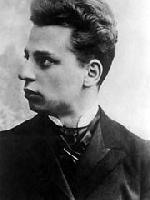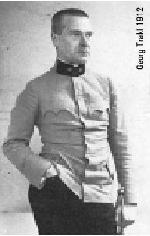Siri Hustvedt, Jaan Kross
Die amerikanische Schriftstellerin Siri Hustvedt wurde am 19. Februar 1955 in Northfield, Minnesota geboren. Hustvedt ist Tochter einer Norwegerin und eines Norwegischprofessors. Sie wuchs zweisprachig auf. Seit sie vierzehn Jahre alt war, wollte sie Schriftstellerin werden und während ihrer Highschool-Zeit schrieb sie Gedichte. 1981 heiratete Siri Hustvedt den Schriftsteller Paul Auster, welchen sie ein Jahr zuvor kennen gelernt hatte. Sie studierte Englische Literatur und machte 1986 ihren PhD an der Columbia University. Das Paar lebt in Brooklyn mit seiner 1987 geborenen Tochter Sophie und Austers Sohn aus erster Ehe. Hustvedts bekannteste Romane sind Die Verzauberung der Lily Dahl (1992) und Was ich liebte (2003). Ihr jüngstes Werk ist der Roman The Sorrows of an American (deutscher Titel: Die Leiden eines Amerikaners), der im März 2008 erschien.
Aus: The Sorrows of an American
„My sister called it “the year of secrets,” but when I look back on it now, I’ve come to understand that it was a time not of what was there, but of what wasn’t. A patient of mine once said, “There are ghosts walking around inside me, but they don’t always talk. Sometimes they have nothing to say.” Sarah squinted or kept her eyes closed most of the time because she was afraid the light would blind her. I think we all have ghosts inside us, and it’s better when they speak than when they don’t. After my father died, I couldn’t talk to him in person anymore, but I didn’t stop having conversations with him in my head. I didn’t stop seeing him in my dreams or stop hearing his words. And yet it was what my father hadn’t said that took over my life for a while—what he hadn’t told us. It turned out that he wasn’t the only person who had kept secrets. On January sixth, four days after his funeral, Inga and I came across the letter in his study.
We had stayed on in Minnesota with our mother to begin tackling the job of sifting through his papers. We knew that there was a memoir he had written in the last years of his life, as well as a box containing the letters he had sent to his parents—many of them from his years as a soldier in the Pacific during World War II—but there were other things in that room we had never seen. My father’s study had a particular smell, one slightly different from the rest of the house. I wondered if all the cigarettes he’d smoked and the coffee he’d drunk and the rings those endless cups had left on the desk over forty years had acted upon the atmosphere of that room to produce the unmistakable odor that hit me when I walked through the door. The house is sold now. A dental surgeon bought it and did extensive renovations, but I can still see my father’s study with its wall of books, the filing cabinets, the long desk he had built himself, and the plastic organizer on it, which despite its transparency had small handwritten labels on every drawer—“Paper Clips,” “Hearing Aid Batteries,” “Keys to the Garage,” “Erasers.”
Siri Hustvedt (Northfield, 19. Februar 1955)
Der estnische Schriftsteller Jaan Kross wurde am 19. Februar 1920 in Tallinn geboren. Kross besuchte die Universität Tartu, schloss dort 1944 als Jurist ab und lehrte als Dozent für weitere zwei Jahre (und wieder als Professor der Artes Liberales 1998). Im Frühjahr 1944 wurde er von den deutschen Besatzern und 1946 von den Sowjets verhaftet, die ihn nach Sibirien deportierten, wo er bis 1954 im Gulag verblieb. Nach seiner Rückkehr nach Tallinn 1954 folgten im nächsten Jahr erste Veröffentlichungen von Gedichten in verschiedenen Zeitschriften. Seitdem war er als freier Schriftsteller tätig. Seine reimlosen Gedichte der 1950er und 60er Jahre modernisierten die estnische Lyrik. Er war seit 1958 Mitglied des estnischen Schriftstellerverbandes, dessen Präsidium er ab 1971 angehörte. In den 1970/80ern verfasste er vor allem historische Romane. Im folgenden Jahrzehnt wandte er sich der jüngeren estnischen Vergangenheit zu, wobei seine Romane immer deutlicher autobiographische Züge annahmen. Zwischen 1992 und 1993 war er Mitglied des estnischen Parlaments. An der Universität Tartu nahm er 1998 die die Professur der freien Künste wahr. Zu den Werken Jaan Kross' gehören 13 Romane, seine Autobiographie, 6 Lyrikbände und Essaysammlungen sowie weiterhin Opernlibretti.
Aus: Treading Air (Übersetzt von Eric Dickens)
„My immediate superior in this new job was, as said above, the private secretary to the Prime-Minister, Major Tilgre. He no doubt came from the fertile province of Mulgimaa, but was, for all that, a particularly dry individual, a thoroughly correct man of around forty-five. In actual fact, Tilgre had less to do with me than Head of Chancery Terras who was in formal terms a much higher and more distant boss. This smallish man was the soul of discretion, came originally from the Virumaa province near the capital and had graduated from Saint Petersburg University. He had qualities ideal for a civil servant - he was entirely inconspicuous. But he was always there when he was needed. And inconspicuous, thus indispensable, to such a degree that he stayed in his post for over twenty years, during all the changes of government which Estonia underwent. And what's more, he stayed at his post even during the first few weeks of 1946, that is to say during Barbarus' time as prime-minister, until one of the informers in place by that time noticed, and the inevitable came to pass. The Head of the Chancery was arrested and given the choice of dying a year later what was a normal death at the Solikam labour camp, of hunger and dysentery, or to freeze to death, which, God rest his soul, was, as we all know, the normal death for someone of his calibre.
And I, Jaak Sirkel, as I leaf through my old exercise books filled with Ulloica think to myself: I myself know this full well. Because Ullo knew this in quite a mythical way, the way we all know from hearsay about what happened. But as for me, I received a full-blown academic lecture on the subject (and in an environment of much greater relevance) from a bald-headed chap with major's flashes.
This happened to me during the last days of my career as felt boot-dryer in the year 1949. I have described elsewhere the ins and outs of this particular profession, and how I ended up entering it. But only now did the thought strike me that my dismissal from what was, by labour camp standards, rather a pleasant job, is maybe the result of this didactic conversation.”
Jaan Kross (19. Februar 1920 – 27. Dezember 2007)
Aus: The Sorrows of an American
„My sister called it “the year of secrets,” but when I look back on it now, I’ve come to understand that it was a time not of what was there, but of what wasn’t. A patient of mine once said, “There are ghosts walking around inside me, but they don’t always talk. Sometimes they have nothing to say.” Sarah squinted or kept her eyes closed most of the time because she was afraid the light would blind her. I think we all have ghosts inside us, and it’s better when they speak than when they don’t. After my father died, I couldn’t talk to him in person anymore, but I didn’t stop having conversations with him in my head. I didn’t stop seeing him in my dreams or stop hearing his words. And yet it was what my father hadn’t said that took over my life for a while—what he hadn’t told us. It turned out that he wasn’t the only person who had kept secrets. On January sixth, four days after his funeral, Inga and I came across the letter in his study.
We had stayed on in Minnesota with our mother to begin tackling the job of sifting through his papers. We knew that there was a memoir he had written in the last years of his life, as well as a box containing the letters he had sent to his parents—many of them from his years as a soldier in the Pacific during World War II—but there were other things in that room we had never seen. My father’s study had a particular smell, one slightly different from the rest of the house. I wondered if all the cigarettes he’d smoked and the coffee he’d drunk and the rings those endless cups had left on the desk over forty years had acted upon the atmosphere of that room to produce the unmistakable odor that hit me when I walked through the door. The house is sold now. A dental surgeon bought it and did extensive renovations, but I can still see my father’s study with its wall of books, the filing cabinets, the long desk he had built himself, and the plastic organizer on it, which despite its transparency had small handwritten labels on every drawer—“Paper Clips,” “Hearing Aid Batteries,” “Keys to the Garage,” “Erasers.”
Siri Hustvedt (Northfield, 19. Februar 1955)
Der estnische Schriftsteller Jaan Kross wurde am 19. Februar 1920 in Tallinn geboren. Kross besuchte die Universität Tartu, schloss dort 1944 als Jurist ab und lehrte als Dozent für weitere zwei Jahre (und wieder als Professor der Artes Liberales 1998). Im Frühjahr 1944 wurde er von den deutschen Besatzern und 1946 von den Sowjets verhaftet, die ihn nach Sibirien deportierten, wo er bis 1954 im Gulag verblieb. Nach seiner Rückkehr nach Tallinn 1954 folgten im nächsten Jahr erste Veröffentlichungen von Gedichten in verschiedenen Zeitschriften. Seitdem war er als freier Schriftsteller tätig. Seine reimlosen Gedichte der 1950er und 60er Jahre modernisierten die estnische Lyrik. Er war seit 1958 Mitglied des estnischen Schriftstellerverbandes, dessen Präsidium er ab 1971 angehörte. In den 1970/80ern verfasste er vor allem historische Romane. Im folgenden Jahrzehnt wandte er sich der jüngeren estnischen Vergangenheit zu, wobei seine Romane immer deutlicher autobiographische Züge annahmen. Zwischen 1992 und 1993 war er Mitglied des estnischen Parlaments. An der Universität Tartu nahm er 1998 die die Professur der freien Künste wahr. Zu den Werken Jaan Kross' gehören 13 Romane, seine Autobiographie, 6 Lyrikbände und Essaysammlungen sowie weiterhin Opernlibretti.
Aus: Treading Air (Übersetzt von Eric Dickens)
„My immediate superior in this new job was, as said above, the private secretary to the Prime-Minister, Major Tilgre. He no doubt came from the fertile province of Mulgimaa, but was, for all that, a particularly dry individual, a thoroughly correct man of around forty-five. In actual fact, Tilgre had less to do with me than Head of Chancery Terras who was in formal terms a much higher and more distant boss. This smallish man was the soul of discretion, came originally from the Virumaa province near the capital and had graduated from Saint Petersburg University. He had qualities ideal for a civil servant - he was entirely inconspicuous. But he was always there when he was needed. And inconspicuous, thus indispensable, to such a degree that he stayed in his post for over twenty years, during all the changes of government which Estonia underwent. And what's more, he stayed at his post even during the first few weeks of 1946, that is to say during Barbarus' time as prime-minister, until one of the informers in place by that time noticed, and the inevitable came to pass. The Head of the Chancery was arrested and given the choice of dying a year later what was a normal death at the Solikam labour camp, of hunger and dysentery, or to freeze to death, which, God rest his soul, was, as we all know, the normal death for someone of his calibre.
And I, Jaak Sirkel, as I leaf through my old exercise books filled with Ulloica think to myself: I myself know this full well. Because Ullo knew this in quite a mythical way, the way we all know from hearsay about what happened. But as for me, I received a full-blown academic lecture on the subject (and in an environment of much greater relevance) from a bald-headed chap with major's flashes.
This happened to me during the last days of my career as felt boot-dryer in the year 1949. I have described elsewhere the ins and outs of this particular profession, and how I ended up entering it. But only now did the thought strike me that my dismissal from what was, by labour camp standards, rather a pleasant job, is maybe the result of this didactic conversation.”
Jaan Kross (19. Februar 1920 – 27. Dezember 2007)
froumen - 19. Feb, 20:51



